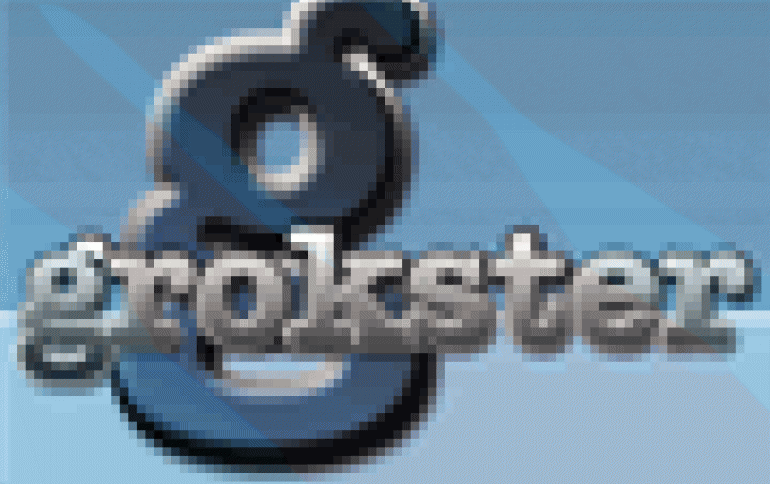
Grokster Loses File-Sharing Case
File-sharing service Grokster has agreed to stop distributing software that allows users to copy songs over the Internet after losing its case before the U.S. Supreme Court, a recording industry trade group said on Monday.
The settlement with the Recording Industry Association of America follows the high court's unanimous ruling in June that Grokster and other "peer to peer" networks can be held liable if they induce users into violating copyright laws.
Grokster, the lead defendant in the case, agreed to stop activity that leads to copyright infringement.
"There are legal services for downloading music and movies. This service is not one of them," read a notice on Grokster's Web site. "Grokster hopes to have a safe and legal service available soon."
The recording industry believes that its five-year sales slump can be traced to networks like Grokster that allow millions of users to copy movies, songs and other files directly from each others' computers.
The RIAA has sued more than 15,500 peer-to-peer users for copyright infringement.
"At the end of the day, this is about our ability to invest in new music. An online marketplace populated by legitimate services allows us to do just that," RIAA chairman Mitch Bainwol said in a statement.
The victory is largely symbolic because Grokster has steadily lost users over the years to more innovative services, said an expert who tracks file-trading traffic.
"It's a very famous brand primarily because of a Supreme Court case," said BigChampagne CEO Eric Garland. "Most people have read about Grokster in the newspaper but have not actually used their software."
Grokster users will still be able to copy music, movies and software directly from each others' hard drives, as the decentralized nature of most peer-to-peer software makes it impossible to control once it is released on the Internet.
Traffic remains steady over two other popular peer-to-peer services, WinMX and eDonkey, that announced plans to shut down in September, Garland said.
Digital sales from download services and mobile-phone ring tones tripled in the first half of 2005 to about $790 million, or 6 percent of all sales, according to the International Federation of the Phonographic Industry.
But peer-to-peer usage increased as well. An average of 9.2 million users were logged on to peer-to-peer networks in October, up from 6.3 million a year ago, according to BigChampagne.
Grokster is in the process of being sold to Mashboxx LLC, a company that intends to develop an industry-approved peer-to-peer service.
A Grokster rebirth would not be unprecedented. Pioneering file-trading service Napster re-emerged as a pay service after recording industry lawsuits forced it to shut its doors in 2001.
Grokster, the lead defendant in the case, agreed to stop activity that leads to copyright infringement.
"There are legal services for downloading music and movies. This service is not one of them," read a notice on Grokster's Web site. "Grokster hopes to have a safe and legal service available soon."
The recording industry believes that its five-year sales slump can be traced to networks like Grokster that allow millions of users to copy movies, songs and other files directly from each others' computers.
The RIAA has sued more than 15,500 peer-to-peer users for copyright infringement.
"At the end of the day, this is about our ability to invest in new music. An online marketplace populated by legitimate services allows us to do just that," RIAA chairman Mitch Bainwol said in a statement.
The victory is largely symbolic because Grokster has steadily lost users over the years to more innovative services, said an expert who tracks file-trading traffic.
"It's a very famous brand primarily because of a Supreme Court case," said BigChampagne CEO Eric Garland. "Most people have read about Grokster in the newspaper but have not actually used their software."
Grokster users will still be able to copy music, movies and software directly from each others' hard drives, as the decentralized nature of most peer-to-peer software makes it impossible to control once it is released on the Internet.
Traffic remains steady over two other popular peer-to-peer services, WinMX and eDonkey, that announced plans to shut down in September, Garland said.
Digital sales from download services and mobile-phone ring tones tripled in the first half of 2005 to about $790 million, or 6 percent of all sales, according to the International Federation of the Phonographic Industry.
But peer-to-peer usage increased as well. An average of 9.2 million users were logged on to peer-to-peer networks in October, up from 6.3 million a year ago, according to BigChampagne.
Grokster is in the process of being sold to Mashboxx LLC, a company that intends to develop an industry-approved peer-to-peer service.
A Grokster rebirth would not be unprecedented. Pioneering file-trading service Napster re-emerged as a pay service after recording industry lawsuits forced it to shut its doors in 2001.




















